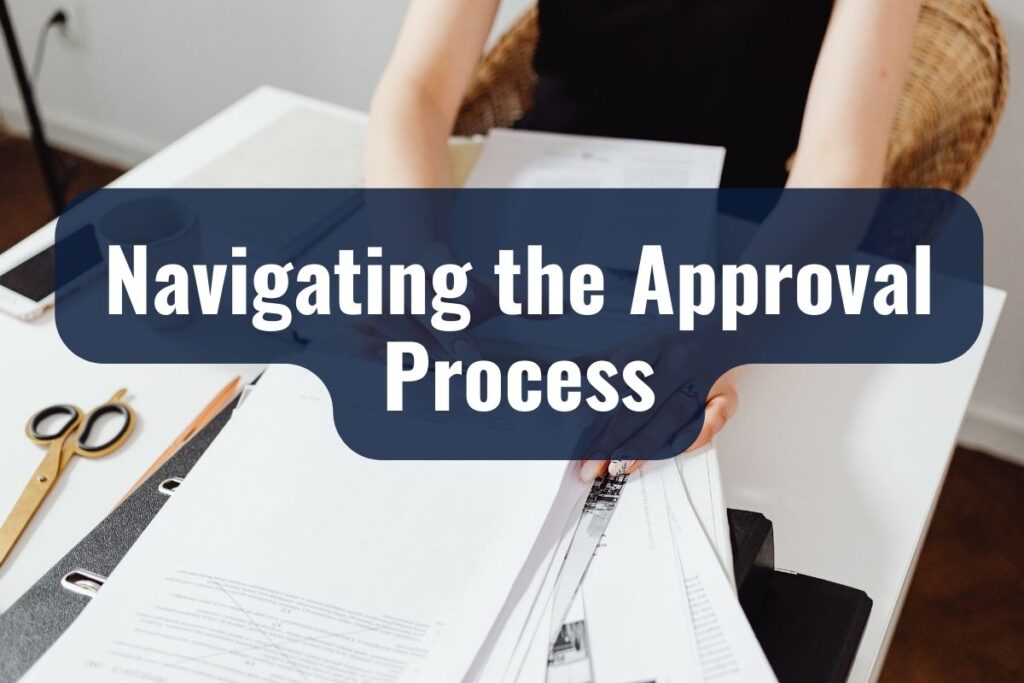While the prospect of applying for a loan in a foreign country can seem overwhelming, especially for those not fluent in French, it’s entirely feasible with the right guidance. This article aims to help you secure a personal loan in France.
Understanding the eligibility criteria for loans and the application process can significantly enhance your chances of approval. Furthermore, by arming yourself with knowledge about interest rates, fees, and loan management, you’ll be better equipped to maintain your financial health while enjoying your life in France.
KEY TAKEAWAYS
- Secure your loan with proof of stable income, residency, and a solid financial foundation.
- Prepare essential documents including ID, proof of income, and residency for a smooth process.
- Research and compare lenders to find the best rates and terms for your situation.
- Know the APR and associated fees to gauge the total cost of your loan accurately.
- Provide complete, accurate documentation and follow up to enhance approval chances.
- Review and understand your loan agreement fully before committing.
- Maintain a healthy budget and monitor your loan and credit to protect your financial health.
Eligibility Criteria for Expats
Securing a personal loan in France involves navigating a set of eligibility criteria that may differ from those expatriates have encountered in their home countries. French banks and lending institutions have specific requirements to assess the creditworthiness and repayment capability of applicants.
Understanding these criteria is crucial for expatriates to apply for a personal loan successfully. This section outlines the common eligibility requirements and offers insights into what lenders look for in potential borrowers.
Residency Status
One of the primary considerations for lenders is the applicant’s residency status in France. Generally, banks prefer lending to individuals who have a stable residency status, such as:
- Long-term visa holders
- Holders of a carte de séjour (residency permit)
- EU citizens with proof of residency in France
These criteria ensure that the borrower has a stable presence in the country, which reduces the perceived risk for the lender.
Employment and Income Stability
A stable income from employment or a reliable source is crucial for loan approval. Lenders typically require proof of employment and income to assess your ability to repay the loan. Requirements may include:
- Employment contracts
- Recent payslips (usually the last three months)
- Tax returns or proof of income for self-employed individuals
Banks look for continuity and reliability in your income sources, considering factors like the length of employment and the nature of your job or business.
Credit History in France
While your credit history from another country may not be directly accessible to French banks, they will consider your financial history in France. This can include:
- Bank statements
- History of previous loans and their repayments in France
- Utility bills and rent payments, as indirect indicators of financial responsibility
For expats new to France, establishing a credit history can begin with simpler financial products, like credit cards or smaller loans.
Bank Account in France
Having a French bank account is usually a prerequisite for applying for a loan. This account serves as a hub for your financial transactions in France and is a sign of your financial integration into the country. It’s also where your loan funds will be deposited and from where your repayments will be deducted.
Age
Most banks have age-related criteria, typically requiring borrowers to be over 18. Some may also have an upper age limit by the end of the loan term. Additionally, proof of health insurance may be requested, especially for larger loan amounts, to mitigate the risk of non-repayment due to health issues.
Guarantor or Collateral
In some cases, especially for larger loans or if your financial standing in France is not well-established, banks may require a guarantor or collateral. A guarantor is someone who agrees to repay the loan if you are unable to, while collateral could be any asset that the bank can seize if you fail to repay the loan.
Required Documentation for Getting a Personal Loan in France
Applying for a personal loan in France necessitates preparing a dossier of documents that substantiate your eligibility and financial stability. This documentation allows lenders to assess your creditworthiness and make an informed decision regarding your loan application.
For expatriates, understanding the specific paperwork required is essential to streamline the application process and enhance the chances of approval. Below is a detailed list of the documents typically required by French banks for a personal loan application.
Identification and Residency Documents
- Valid Passport or National ID Card: To verify your identity.
- Proof of Residency: This can be a recent utility bill, a rent receipt, or a residence certificate (certificat de résidence) for expatriates, demonstrating your address in France.
Proof of Income and Employment
- Recent Payslips: Generally, the last three months’ payslips are required to establish a consistent income.
- Bank Statements: The last three to six months’ bank statements that show income and regular expenses.
- Employment Contract: A copy of your current employment contract can be requested to verify employment status and income stability.
- Tax Returns: Especially relevant for self-employed applicants, recent tax returns provide insight into your earnings and financial health.
Financial Stability and Creditworthiness
- Credit History: While expatriates may not have a lengthy credit history in France, any existing records of financial transactions, previous loans, or credit card usage in France can be helpful.
- Proof of Assets or Savings: Documents showing savings accounts, investments, or other assets can bolster your application by demonstrating financial resilience.
Additional Documentation
- Residence Permit (Carte de Séjour): For non-EU expatriates, a valid residence permit is required to prove legal residency in France.
- Health Insurance Proof: Some lenders may request proof of health insurance to assess the risk of health-related financial instability.
- Guarantor or Collateral Documentation: If a guarantor is part of your loan application, their financial information and commitment letter will be needed. Similarly, documents proving ownership and value of any collateral might be required.
Preparing Your Documentation
When preparing your documentation for a personal loan application, it’s crucial to ensure that all documents are current, accurate, and legibly presented. Here are a few tips to keep in mind:
- Translations: If any documents are not in French, consider getting them officially translated to avoid any misunderstandings.
- Clarity and Completeness: Ensure all photocopies are clear and that documents are complete. Missing pages or illegible sections can delay the process.
- Organization: Presenting your documents in an organized manner can make a positive impression on the lender and expedite the review process.
How to Apply for a Personal Loan

Securing a personal loan in France as an expat requires a clear understanding of the application process. This journey involves several key steps, from researching potential lenders to submitting your application and awaiting approval. By following this structured approach, you can increase your chances of securing a loan that meets your needs and financial situation. Let’s delve into the step-by-step process to apply for a personal loan in France.
Step 1: Research Potential Lenders
Start by exploring the various lending options available in France. This includes traditional banks, credit unions, online banks, and specialized lending institutions. Consider factors such as:
- Interest rates: Look for the most competitive rates.
- Loan terms: Assess the flexibility of repayment terms and conditions.
- Fees: Be aware of any application fees, early repayment fees, or other charges.
- Services in English: For those who are not fluent in French, finding lenders that offer services in English can be crucial.
Step 2: Compare Interest Rates and Terms
Once you have a list of potential lenders, compare their interest rates and loan terms. Pay special attention to:
- Annual Percentage Rate (APR): This includes the interest rate plus any fees, providing a complete picture of the loan cost.
- Repayment period: Longer terms might mean lower monthly payments but more interest over the life of the loan.
- Loan amount: Ensure the lender can provide the amount you need.
Step 3: Prepare Your Documentation
Gather all the required documentation outlined in the previous section. This may include identification, proof of income and residency, and any additional documents that demonstrate your creditworthiness and financial stability. Having your documents prepared in advance will expedite the application process.
Step 4: Submit Your Application
With your lender selected and documents prepared, you’re ready to submit your loan application. This can typically be done in person at a bank branch, online, or via post, depending on the lender’s processes. Ensure that your application is complete and all required documentation is included to avoid delays.
Step 5: Await Approval and Understand the Offer
After submitting your application, the lender will review your documentation and perform a credit assessment. This process can take from a few days to several weeks. If your application is approved, you’ll receive a loan offer, which will include the loan amount, interest rate, repayment terms, and any fees. It’s crucial to:
- Review the offer carefully: Ensure you understand all the terms and conditions before accepting.
- Ask questions: If anything is unclear, don’t hesitate to ask the lender for clarification.
Step 6: Acceptance and Disbursement
If the loan offer meets your needs and you’re comfortable with the terms, you can accept the offer. The lender will then finalize the loan agreement for you to sign. Once the agreement is signed and any necessary administrative steps are completed, the loan amount will be disbursed to your account, typically within a few days.
Understanding Interest Rates and Fees
When considering a personal loan in France, a critical aspect that requires your attention is the structure of interest rates and fees associated with the loan. These factors significantly influence the overall cost of borrowing, impacting your financial commitments over the loan’s term. This section aims to provide you with a clear understanding of how interest rates and fees work in the context of personal loans in France, offering guidance to ensure you secure a loan that aligns with your financial goals and capabilities.
Interest Rates Explained
Interest rates on personal loans can vary widely between lenders and are influenced by several factors including your creditworthiness, the loan amount, and the repayment term. In France, interest rates are typically presented as the Annual Percentage Rate (APR), which encompasses the nominal interest rate along with any fees or additional costs associated with the loan. Understanding the APR allows you to accurately compare the total cost of loans from different lenders.
Fixed vs. Variable Rates: Loans can come with fixed interest rates, which remain constant over the loan’s duration, or variable rates, which can fluctuate based on changes in the market or benchmark rates. Fixed rates offer predictability in your monthly payments, while variable rates may offer lower rates initially but carry the risk of increasing over time.
Common Fees and Charges
Beyond the interest rate, personal loans can include various fees that affect the total cost of borrowing. Being aware of these fees will help you avoid surprises and make more informed decisions.
- Application Fees: Some lenders charge a fee to process your loan application, though this is not universal.
- Origination Fees: Also known as administrative fees, these are charged by some lenders to cover the costs of processing the loan. They can be a flat fee or a percentage of the loan amount.
- Early Repayment Fees: If you decide to pay off your loan early, some lenders may charge a fee. This compensates the lender for the interest payments they will miss out on.
- Late Payment Fees: Missing a loan repayment can result in late payment fees, in addition to potentially affecting your credit score.
Tips for Securing the Best Rates and Minimizing Fees
- Shop Around: Don’t settle for the first offer you receive. Compare rates and fees from multiple lenders to find the best deal.
- Negotiate: If you have a strong credit history or existing relationship with a bank, you may be able to negotiate better terms.
- Understand the Fine Print: Carefully read the loan agreement to understand all the fees and charges. Ask questions if anything is unclear.
- Consider the Total Cost: When comparing loans, consider the total cost over the life of the loan, not just the monthly payment or the interest rate.
The Approval Process

After submitting your personal loan application, the period of waiting for a decision can be a time of uncertainty. Understanding what happens during the approval process can help mitigate this uncertainty and prepare you for the possible outcomes. This section will guide you through the steps lenders take to assess your application and how you can navigate this process effectively as an expat in France.
The Lender’s Review
Once your application is submitted, it enters a review phase where the lender evaluates your financial stability, creditworthiness, and ability to repay the loan. This assessment typically involves:
Verification of Information: Lenders will verify the personal and financial information provided in your application. This may include checking your employment status, income, and residency.
Credit Check: A credit evaluation is conducted to review your history of managing credit and repaying debts. For expats without a long credit history in France, lenders may consider alternative indicators of financial responsibility.
Risk Assessment: The lender assesses the risk associated with lending to you. This includes evaluating the loan amount relative to your income and other financial obligations.
Common Reasons for Approval or Rejection
Understanding the common reasons for loan approval or rejection can help you anticipate the lender’s decision and prepare for the next steps.
Approved: If your application is approved, it typically means the lender has determined that you pose a low risk of default. Your stable income, sufficient creditworthiness, and the feasibility of the loan amount are key factors in this decision.
Rejected: Rejections can occur for several reasons, such as insufficient income, high debt-to-income ratio, inadequate credit history, or missing documentation. If your application is rejected, the lender will usually provide the specific reasons, offering you an opportunity to address these issues for future applications.
Tips for a Smooth Approval Process
Complete and Accurate Documentation: Ensure your application is complete and all documents are accurate and up to date. Missing or incorrect information can lead to delays or rejection.
Follow Up: If you haven’t heard from the lender within the expected timeframe, it’s reasonable to follow up for an update on your application status.
Consider Pre-Approval: Some lenders offer a pre-approval process that can give you an idea of your eligibility and possible loan terms without affecting your credit score.
Managing Your Loan and Financial Health

Successfully securing a personal loan is just the beginning. The real work lies in managing your loan effectively while maintaining and even improving your overall financial health. For expatriates living in France, this dual focus not only ensures that you meet your loan obligations but also helps you build a strong financial foundation in your new country. Here are key strategies to manage your personal loan and safeguard your financial well-being.
Regularly Review Your Loan Status
- Stay Informed: Keep track of your loan balance and monitor your repayments. Regular reviews will help you stay on top of any changes in interest rates, fees, or the total cost of your loan.
- Adjustments: If your financial situation improves, consider increasing your monthly payments to shorten the loan term and save on interest. Conversely, if you face financial challenges, review your loan terms to see if adjustments or refinancing options are available.
Maintain a Healthy Budget
- Budgeting: Create and adhere to a budget that accounts for your loan repayments, living expenses, savings, and investments. This will help you manage your cash flow and ensure you have enough to cover your monthly loan payments without sacrificing other financial goals.
- Emergency Fund: Aim to build and maintain an emergency fund. This financial buffer can cover unexpected expenses or financial downturns without needing to resort to additional borrowing.
Improve Your Financial Literacy
- Financial Education: Take advantage of financial education resources to improve your understanding of personal finance, investment, and the French banking system. This knowledge can empower you to make informed decisions and navigate the financial landscape more effectively.
- Professional Advice: Consider seeking advice from a financial advisor, especially for complex decisions involving investments, tax planning, or if you’re considering buying property in France.
Monitor and Improve Your Credit Score
- Credit History: Building a good credit history in France is crucial for your financial future, including the ability to secure loans on favorable terms. Make all your loan payments on time, and manage other credit products responsibly to improve your credit score.
- Check Your Credit Report: Regularly review your credit report for errors or discrepancies that could affect your credit score. In France, you can request a copy of your credit report from the Banque de France.
Plan for the Future
- Long-term Goals: Keep your long-term financial goals in perspective, whether it’s saving for retirement, purchasing a home, or investing. Your personal loan should fit into a broader financial strategy that moves you towards these objectives.
- Expatriate Considerations: For expats, consider the implications of your loan and overall financial planning on your status in France, including potential moves back to your home country or to another country. Plan for the transferability of your financial assets and consider the legal and tax implications of your decisions.


